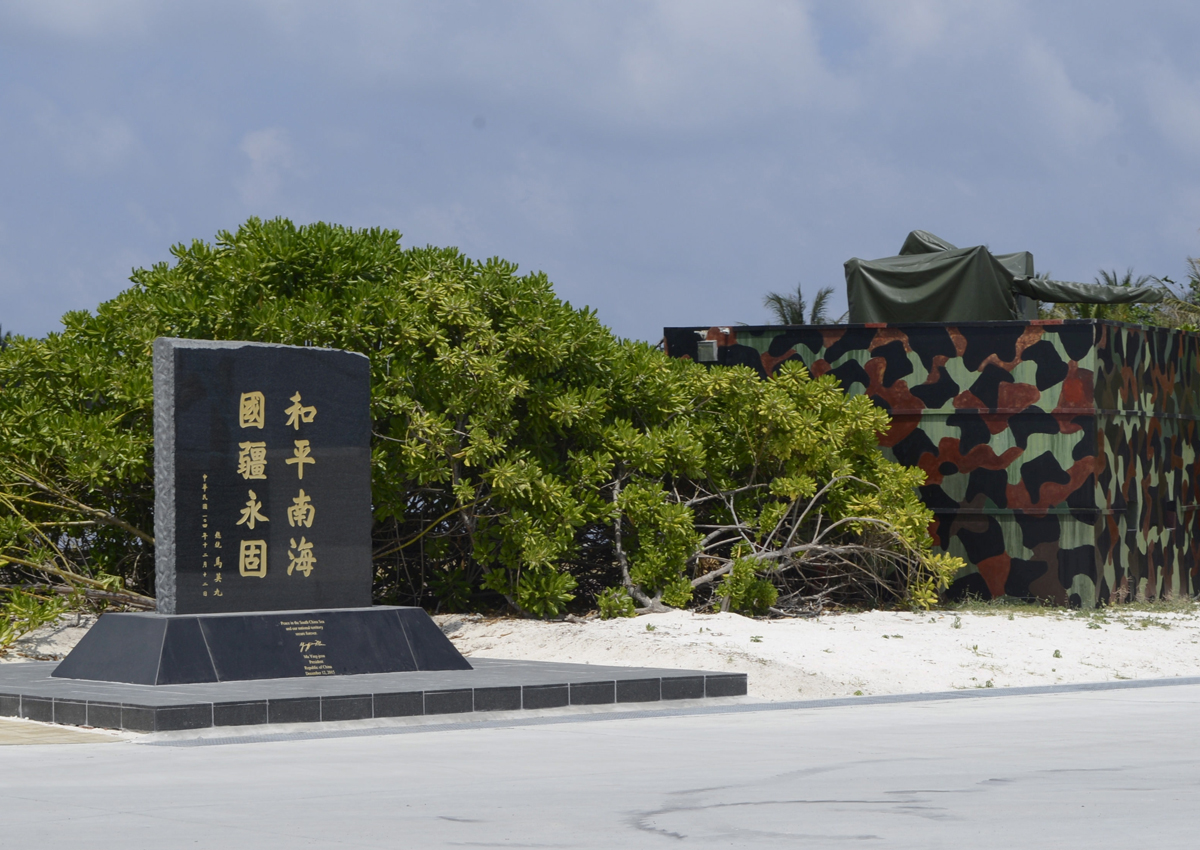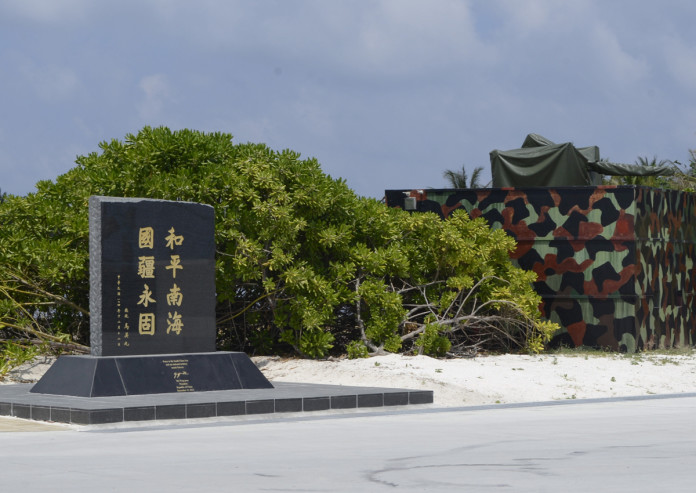HONG KONG/TAIPEI – A Taiwanese group has intervened in the Philippines’ international court case against China’s claims in the South China Sea, pressing Taipei’s position that Taiwan is entitled to a swathe of the disputed waterway as an economic zone.
The unusual submission has emerged just as judges at the Permanent Court of Arbitration in The Hague are poised to rule on the Philippines’ landmark case, brought under the United Nations’ Convention on the Law of the Sea (UNCLOS).
The move could delay the judges’ ruling, now expected within two months, and potentially complicates worsening territorial disputes roiling across the vital trade route.
Last month, the judges allowed written evidence from the government-linked Chinese (Taiwan) Society of International Law, even though Taiwan is neither a member of the United Nations, nor a signatory to UNCLOS, legal and diplomatic sources told Reuters.
As well as reviewing several hundred pages of evidence from Taiwan, the judges have also sought further information from the Philippines and China, legal sources close to the case say.
Manila is challenging the legality of China’s claims to virtually the entire South China Sea, in part by arguing that no reefs, atolls or islets in the Spratly archipelago can legally be considered an island, and therefore holds no rights to an 200 nautical mile (370 km) exclusive economic zone.
Taiwan’s single holding of Itu Aba is the biggest feature in the Spratlys and the one some analysts believe has the strongest claim to island status and an economic zone. The Spratlys are also claimed by China, Vietnam and Malaysia while Brunei claims nearby waters.
Taiwanese officials have bristled at Philippines’ earlier evidence that Itu Aba is a “rock” that cannot support natural human habitation, so has no claims on either island-status, or an EEZ.
Citing various government reports and statements as evidence, the society’s submission to the court states “it is clear that Taiping Island (Itu Aba) is an island which can sustain human habitation and economic life of its own under….UNCLOS.”
Court officials have yet to respond to written questions from Reuters and the Philippines foreign ministry did not immediately respond to requests for comment.
“PROTECT ANCESTRAL PROPERTY”
The Taiwanese move comes amid rising tensions, with Beijing and Washington accusing each other militarising the area as China builds facilities on its recent reef reclamations and the US increases patrols, exercises and overflights.
Reiterating Beijing’s non-acceptance of the case, China’s Foreign Ministry said the Philippines was using the case to negate China’s territorial sovereignty.
“Chinese people on both sides of the Taiwan Strait all have a responsibility to jointly protect the ancestral property of the Chinese people,” the ministry said in a faxed reply to Reuters.
While the society is technically operating as a private body, it has close ties to Taipei, including President Ma Ying-jeou, who once headed the institution and still remains on the board.
Ma staged a high-profile visit to Itu Aba in late January – one of several events orchestrated by Taiwan to push its claimed status as an island.
A spokesman for Ma told Reuters the submission was not made on behalf of the Taiwan government, but its findings were consistent with Taipei’s official stance.
While the society’s arguments might aid China’s position, Beijing is likely to be wary of any move by the judges to bolster Taiwan’s standing in the international community, analysts said.
Chinese officials have repeatedly challenged the court’s jurisdiction and the rights of the Philippines to bring the case, refusing to participate.
Beijing has ignored invitations from the court to provide its own submission, but the judges have taken into account Chinese public statements, according to court releases.
Taiwan, regarded by Beijing as a breakaway province, was not invited to participate in any way. Vietnam has provided a submission in support of Philippines’ arguments that the court has jurisdiction.
Ian Storey, a South China Sea expert at Singapore’s ISEAS Yusof Ishak Institute, said it was significant the judges’ had consented to review Taiwan’s arguments.
“It demonstrates that the judges are striving to be impartial, and that they have been at pains to take into account the views of all the concerned parties, even China, which has refused to participate, and Taiwan, which isn’t a member of the UN,” he said.
While China won’t like the court giving Taiwan”international space”, on this issue “Beijing may decide to look the other way”, he said.






